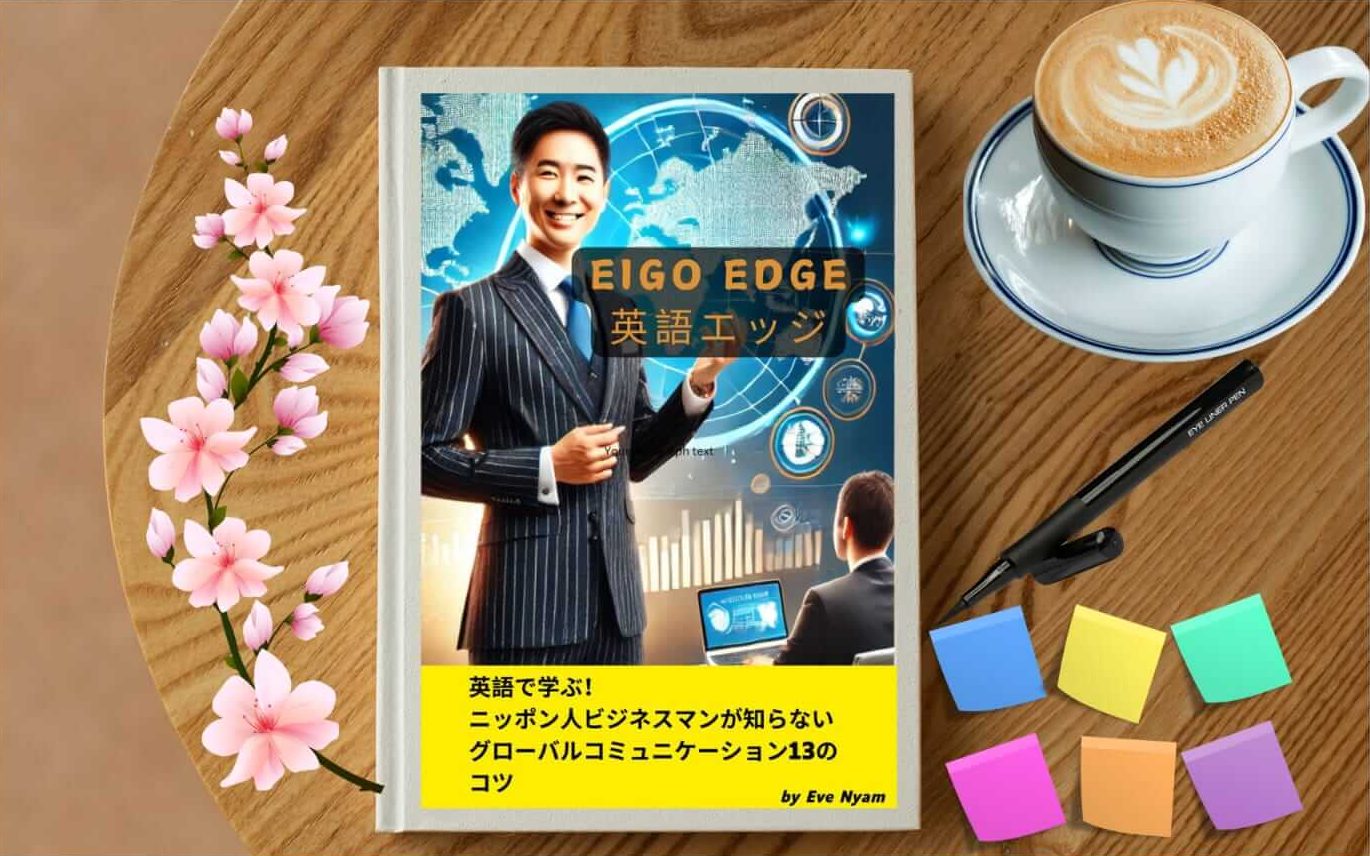We are always looking to grow. Our careers demand growth, the economy demands growth, and even our house plants seem to be judging us if they’re not sprouting new leaves. That’s why we’ve put together this clear, no-fluff TOEFL, IELTS, and TOEIC comparison—designed especially for Japanese business professionals like you.
Because staying stagnant in your career? That’s a recipe for future regret (and possibly fewer houseplants).
In today’s hyper-connected world, where global business calls are as common as your morning coffee, proficiency in English has become the key to unlocking career doors.
For Japanese professionals striving to climb the corporate ladder, expanding your network, snagging that promotion, or packing your bags for an overseas opportunity often starts with proving your English skills.
Enter the internationally renowned English tests: TOEFL, IELTS, and TOEIC. But how do you decide which one is your golden ticket to career success?
Spoiler alert: spinning a wheel or picking one at random might not be the best strategy. Let’s break it down!
This article provides a comprehensive comparison of TOEFL, IELTS, and TOEIC, focusing on their structure, purpose, and suitability for Japanese business professionals. We’ll also include a comparison table to help you make an informed decision.
Overview of Each Test
TOEFL (Test of English as a Foreign Language)
TOEFL is widely recognized for academic and professional purposes. Administered by ETS (Educational Testing Service), it is primarily used by universities and employers in English-speaking countries to assess non-native English speakers’ ability to communicate in academic and professional settings.
- Structure: The test evaluates four skills: Reading, Listening, Speaking, and Writing. The entire test is conducted online (TOEFL iBT).
- Focus: TOEFL emphasizes academic English, making it ideal for professionals planning to pursue further education or research.
- Duration: Approximately 3 hours.
- Scoring: A total score out of 120, with each section contributing up to 30 points.
IELTS (International English Language Testing System)
IELTS is jointly managed by the British Council, IDP: IELTS Australia, and Cambridge Assessment English. It is recognized globally for academic, migration, and professional purposes.
- Structure: It assesses Listening, Reading, Writing, and Speaking. The Speaking section is conducted as a face-to-face interview.
- Focus: IELTS offers two formats: Academic (for study or professional registration) and General Training (for migration or non-academic work).
- Duration: About 2 hours and 45 minutes.
- Scoring: Each section is scored on a band scale of 0-9, and an overall band score is provided.
TOEIC (Test of English for International Communication)
TOEIC, also created by ETS, is designed specifically for workplace and business contexts. It is particularly popular in Japan and other East Asian countries.
- Structure: TOEIC is divided into two separate tests: Listening & Reading and Speaking & Writing. Most Japanese professionals take the Listening & Reading test.
- Focus: TOEIC emphasizes practical workplace communication, such as email writing, meetings, and presentations.
- Duration: 2 hours for Listening & Reading; approximately 1.5 hours for Speaking & Writing.
- Scoring: Listening & Reading are scored on a scale of 10-990, while Speaking & Writing are scored separately on scales of 0-200.
| Key Differences: TOEFL vs. IELTS vs. TOEIC Comparison | |||
| Feature | TOEFL | IELTS | TOEIC |
| Purpose | Academic & professional | Academic, migration, professional | Workplace communication |
| Test Format | Online (iBT) | Paper-based or computer-based | Paper-based |
| Skill Areas Assessed | Reading, Listening, Speaking, Writing | Listening, Reading, Writing, Speaking | Listening, Reading (mainly |
| Speaking Test | Online (recorded responses) | Face-to-face interview | Optional (separate test) |
| Scoring System | 0-120 | 0-9 band | 10-990 (L&R), 0-200 (S&W) |
| Duration | ~3 hours | ~2 hours 45 minutes | 2 hours (L&R), 1.5 hours (S&W) |
| Cost (approx.) | ¥22,000-25,000 | ¥22,000-27,000 | ¥7,000-10,000 (L&R only) |
| Popular in Japan | For study abroad & research | Migration & professional certification | Workplace & corporate needs |
Choosing the Right Test for Your Goals
TOEFL: Best for Academic and Professional Aspirations Abroad
If you’re planning to study or work in English-speaking countries, TOEFL is often a requirement. Its focus on academic English ensures you’re prepared for higher education or research-based roles. However, the test may feel overly formal for business professionals who need conversational English.
IELTS: Versatility and Global Recognition
IELTS’s versatility makes it a strong choice for professionals pursuing migration, further education, or international roles. The face-to-face Speaking section is particularly useful for those looking to build conversational confidence. However, it may feel less business-specific than TOEIC.

TOEIC: Tailored for Workplace Success
TOEIC is highly relevant for Japanese professionals focused on business communication. It’s commonly used by Japanese companies to evaluate employees’ English proficiency. However, its lack of academic focus makes it less ideal for professionals seeking international education opportunities.
Practical Tips for Japanese Professionals
- Understand Your Goals: Are you aiming for academic advancement, global business roles, or improving workplace communication? Align your choice with your aspirations.
- Evaluate Your Skills: If speaking is your weak point, IELTS’s interview format can help you practice real-world conversation. If you’re confident in academic language, TOEFL might be the way to go.
- Consider Employer Preferences: Some Japanese companies prefer TOEIC scores, while international organizations may value TOEFL or IELTS.
- Plan Your Preparation:
- Use practice tests to familiarize yourself with the format.
- Invest in courses or coaching tailored to your chosen exam.
- Dedicate time to improving weaker areas, such as pronunciation or listening comprehension.
Choosing the right English test is a smart step—but what if you’re still not seeing progress, even after months in a conversation school? You might be missing a key piece of the puzzle.
In our post, Why Your Business English Still Isn’t Improving—Even After Months in a Conversation School, we dive into the real reasons your skills may be stuck and how to fix it. If test prep alone isn’t cutting it, this article will help you rethink your study approach and get results. Don’t miss it—your breakthrough might be one click away.
Conclusion
Making the right choice in English tests can be tricky—but that’s where a good TOEFL, IELTS, TOEIC comparison comes in. Think of it like choosing the right tool for the job. You wouldn’t grab a spoon to hammer a nail, right? Each of these tests is designed for a different purpose, and the best one for you depends on your career goals, language strengths, and what your target companies or schools actually expect.
If you have dreams of studying abroad or migrating to an English-speaking country, TOEFL and IELTS are your best bets. They’re like passports to global opportunities.
On the other hand, if your focus is thriving in a Japanese workplace and impressing your colleagues with polished emails and meeting etiquette, TOEIC is the MVP.
No matter which test you choose, remember: investing in your English skills is investing in your career and future bragging rights at international conferences!
By understanding what each test offers and aligning it with your personal and professional aspirations, you’ll be ready to tackle the global stage with confidence. Let’s make those dreams happen!
🎯 Ready to stop guessing and start progressing?
Don’t let another month of “studying” go to waste. Subscribe to our newsletter for straight-to-the-point tips, test strategies, and English learning hacks made just for Japanese business professionals.
Oh—and if you’re serious about leveling up?
Grab our book now. It’s not just helpful—it’s practical, and actually fun to read. (Yes, an English book can do all that.)
👉 Subscribe here at the bottom of the page and get the book here—your future fluent self will thank you.


